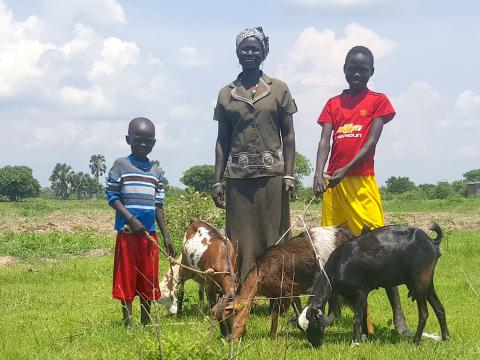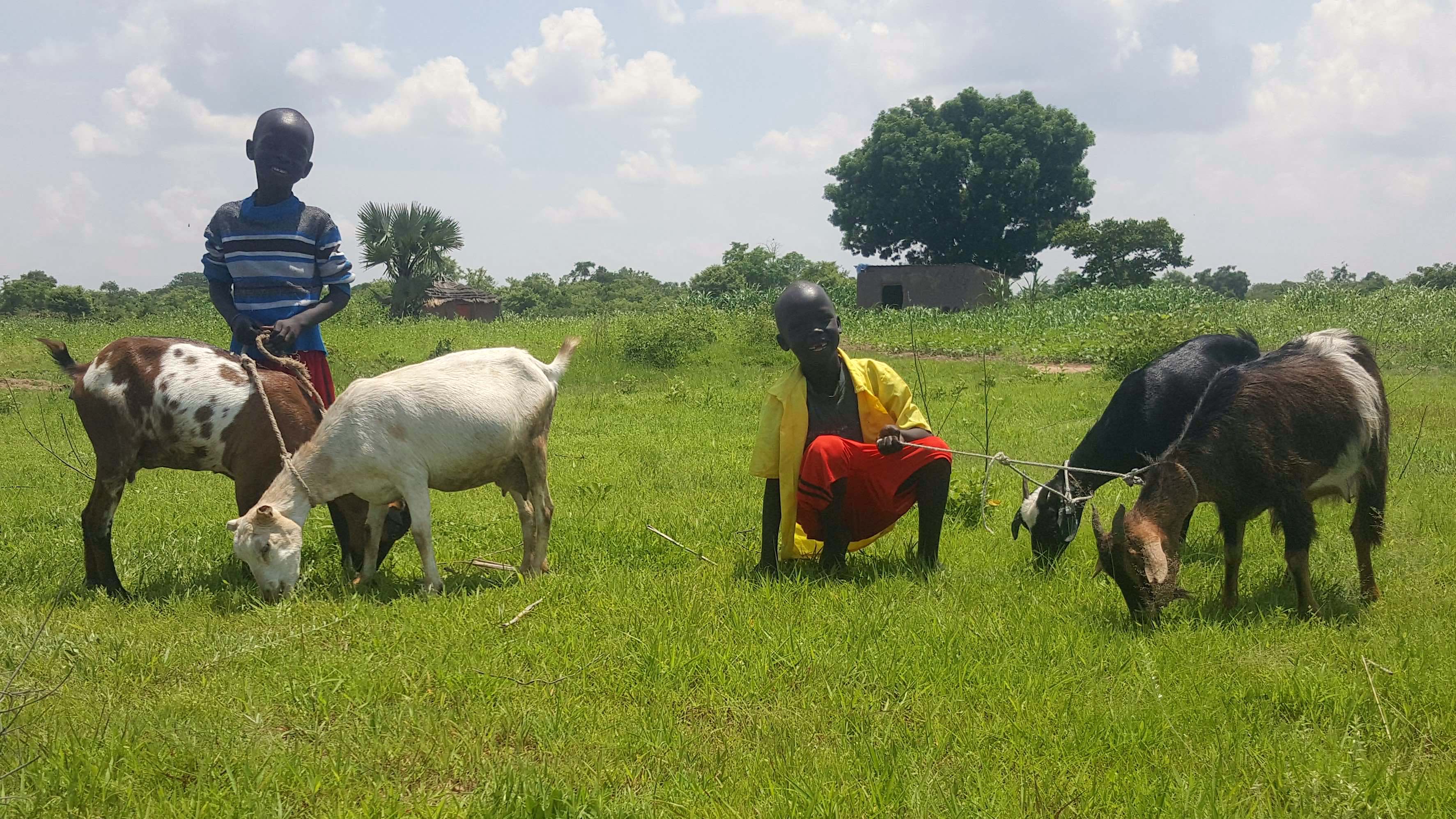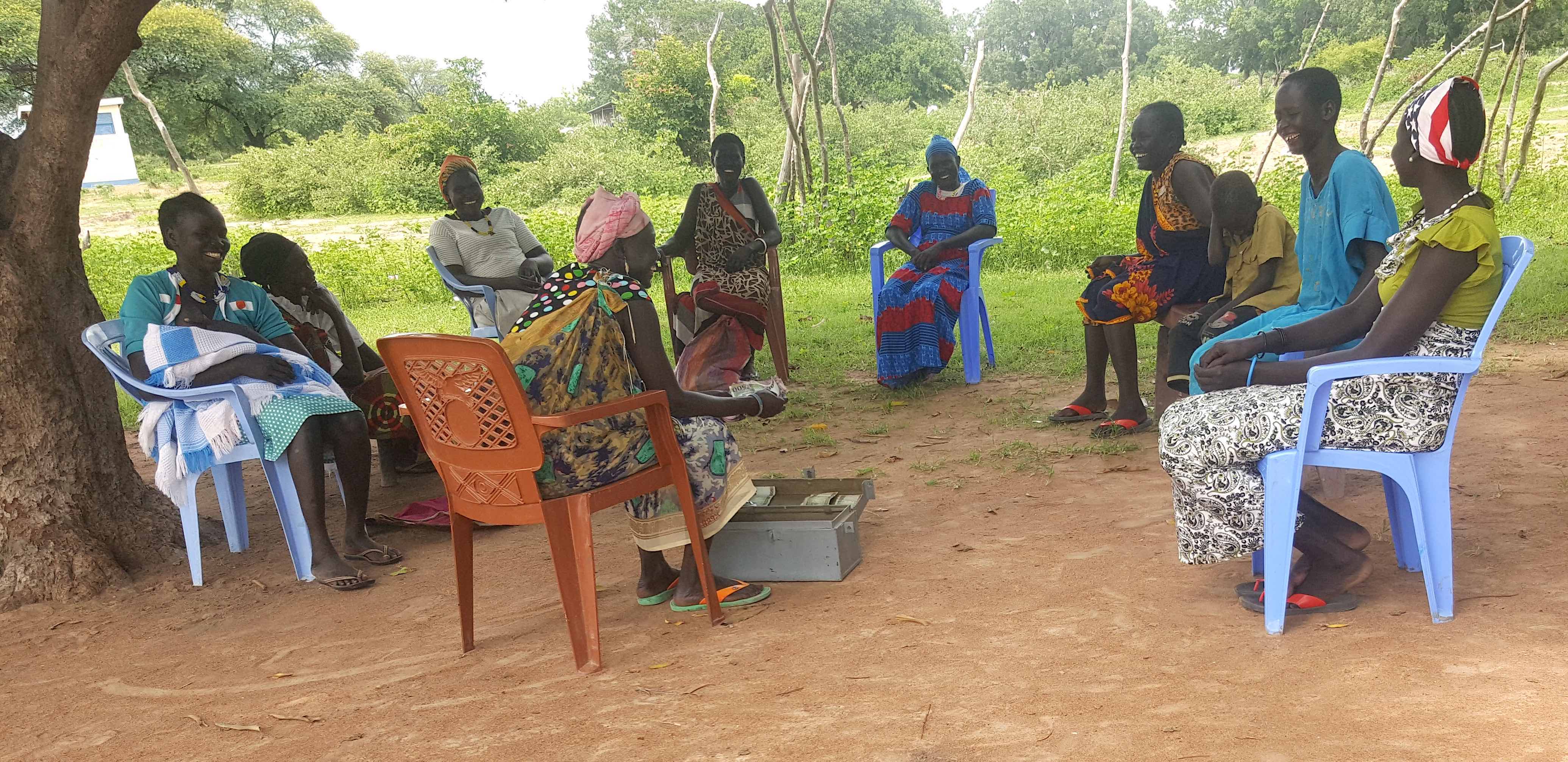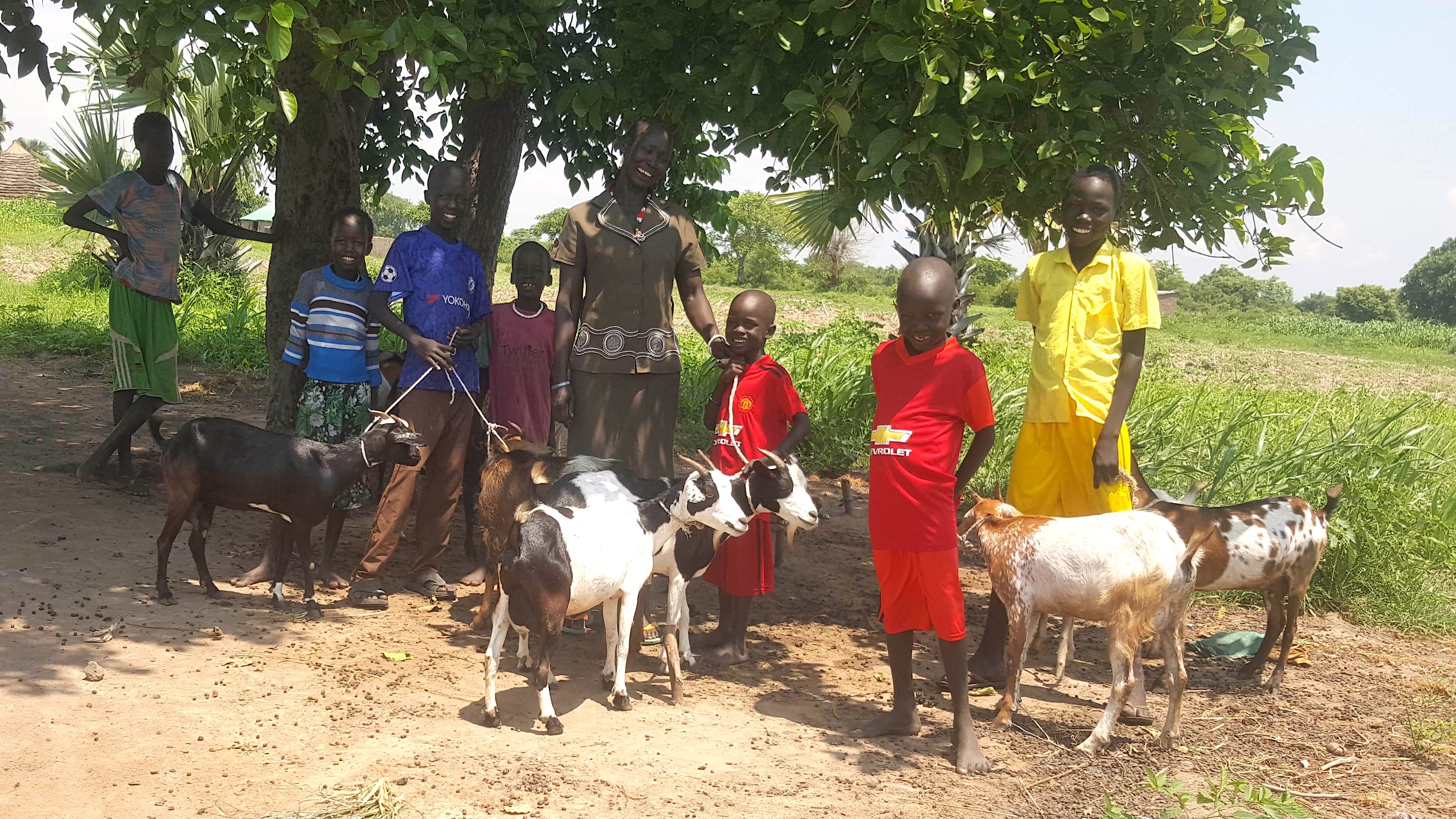Village saving groups revive women’s small businesses; give hope amid COVID-19 in South Sudan

When 31-year-old Ayom Kuol joined the village savings initiative organized by World Vision, she did not realize then that it will spark better livelihood opportunities for her and benefit her children.
The mother of six from Tonj North County in South Sudan’s Warrap State says, “I used to manage a tea shop but because my entire family including my seven children solely depended on it, it eventually collapsed.” With the tea shop gone, the family was left without any income and nothing to eat.
A neighbor introduced her to the Liith-Abiem Village Savings Group has 25 members composed of 13 women and 12 men. Ayom started with a weekly contribution of SSP1,000 SSP (USD$7) in 20l9 and by May 2020, the total amount in the women’s saving box has generated SSP237,000 ($1,570). The savings are shared depending on a member’s contribution at the end of the six months’ cycle.

This World Vision project is supported by the Australian NGO Cooperation Program (ANCP) and aims to enhance the livelihood, increase agricultural production, and farmers’ productivity. It also boosts income by improving market participation for 60,000 vulnerable people in Central Equatoria (Rajaf) and Warrap (Tonj North) States.
The project organized 17 operational groups with an average of 25 members, one of them Ayom now trained on how to manage the weekly savings and learn more about running a business. It provides resources for the vulnerable population, improves their business skills, explore new ways to earn income through savings, and inclusive financial services promotion.
Life was never easy. I faced a lot of problems when I tried saving from my tea shop business. But now, my family benefits from my savings and we enjoy sufficient food from my garden. After the coronavirus, my children will never lack school materials and fees when school opens.
Through her savings, Ayom started a sugar and flour business in the nearby local market called Pankot. She buys her merchandise and supply from Wau town and always goes for more if the demand is higher. This allows her to earn SSP15,000 ($50) profit that she used to buy two goats and settle her children’s school fees.

Ayom shares, “Life was never easy. I faced a lot of problems when I tried saving from my tea shop business. But now, my family benefits from my savings and we enjoy sufficient food from my garden. After the coronavirus, my children will never lack school materials and fees when school opens.”
World Vision’s Field Assistant Deng William adds, “Ayom is a very resilient mother who will do anything to provide for her family despite the challenges. She has a very positive attitude towards work, good plans for her children and is willing to serve her community.”
Liith-Abiem Saving Group’s success is attributed to the member’s unity and the group’s strong leadership from Tuong Madut-awokdieny, the group leader selected by vote by 25 group members. Toung helped the group to unite and encourage the spirit of togetherness. The group’s income has considerably improved through access to dry season vegetable farming.

Berhanu Wolde, ANCP Programme Coordinator says, ‘’ The creation of farmers’ awareness for savings mobilization, the support provided to the groups has ensured its continuity and sustainability. It is crucial for improving farmers’ access to rural financing and farm inputs which enhanced food security in every household that is so important during this time of Covid-19.’’
The project’s Covid-19 awareness campaign has reached over 48,000 people, 15,000 of these are children, in Warrap and Juba zones and has printer 522 banners reminding people of prevention measures to avoid the virus.
Currently, there are 17 saving groups of 425 people actively participating in Tonj North County. World Vision’s project in the area covers Awul, Akop, Manr, and Pagol Payams targeting a total number of 5,000 households in its project life time and reaching 2,750 households this year to consolidate all the previous two years achievements.

Photos: Ayom with children Awet 14, Ariath 11, Chiman 8, and Akol 6.
Story by Michael Deng Mach, ANCP Project Manager I Photos by Akot Arkanjelo, WASH Officer